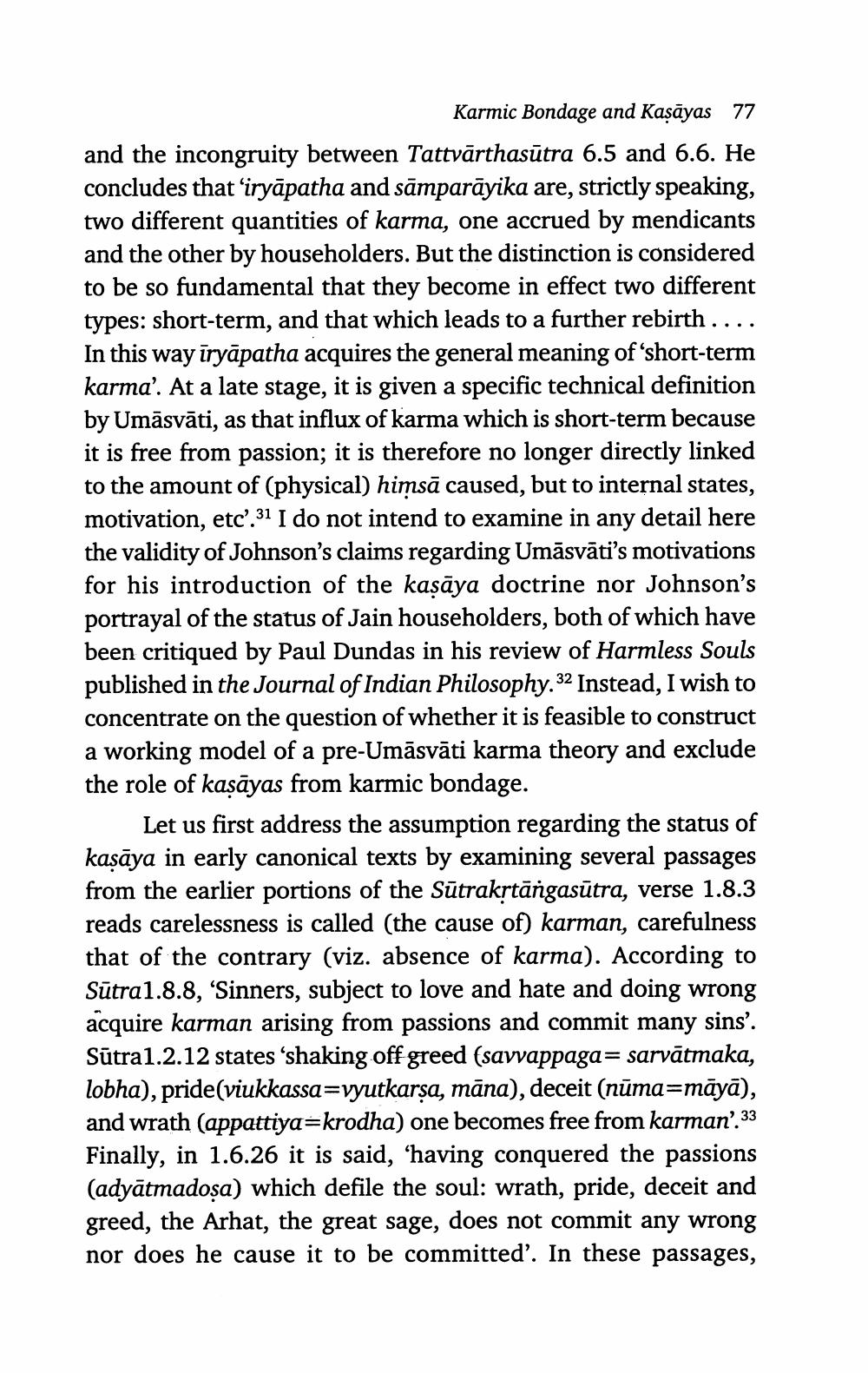________________
Karmic Bondage and Kaşāyas 77 and the incongruity between Tattvārthasūtra 6.5 and 6.6. He concludes that ‘iryāpatha and sāmparāyika are, strictly speaking, two different quantities of karma, one accrued by mendicants and the other by householders. But the distinction is considered to be so fundamental that they become in effect two different types: short-term, and that which leads to a further rebirth .... In this way īryāpatha acquires the general meaning of short-term karma’. At a late stage, it is given a specific technical definition by Umāsvāti, as that influx of karma which is short-term because it is free from passion; it is therefore no longer directly linked to the amount of (physical) himsā caused, but to internal states, motivation, etc.31 I do not intend to examine in any detail here the validity of Johnson's claims regarding Umāsvāti's motivations for his introduction of the kasāya doctrine nor Johnson's portrayal of the status of Jain householders, both of which have been critiqued by Paul Dundas in his review of Harmless Souls published in the Journal of Indian Philosophy. 32 Instead, I wish to concentrate on the question of whether it is feasible to construct a working model of a pre-Umāsvāti karma theory and exclude the role of kaşāyas from karmic bondage.
Let us first address the assumption regarding the status of kasāya in early canonical texts by examining several passages from the earlier portions of the Sūtrakstāngasūtra, verse 1.8.3 reads carelessness is called (the cause of) karman, carefulness that of the contrary (viz. absence of karma). According to Sūtra1.8.8, 'Sinners, subject to love and hate and doing wrong acquire karman arising from passions and commit many sins'. Sūtral.2.12 states ‘shaking off greed (savvappaga= sarvātmaka, lobha), pride(viukkassa=vyutkarsa, māna), deceit (nūma=māyā), and wrath (appattiya=krodha) one becomes free from karman'. 33 Finally, in 1.6.26 it is said, 'having conquered the passions (adyātmadosa) which defile the soul: wrath, pride, deceit and greed, the Arhat, the great sage, does not commit any wrong nor does he cause it to be committed'. In these passages,




